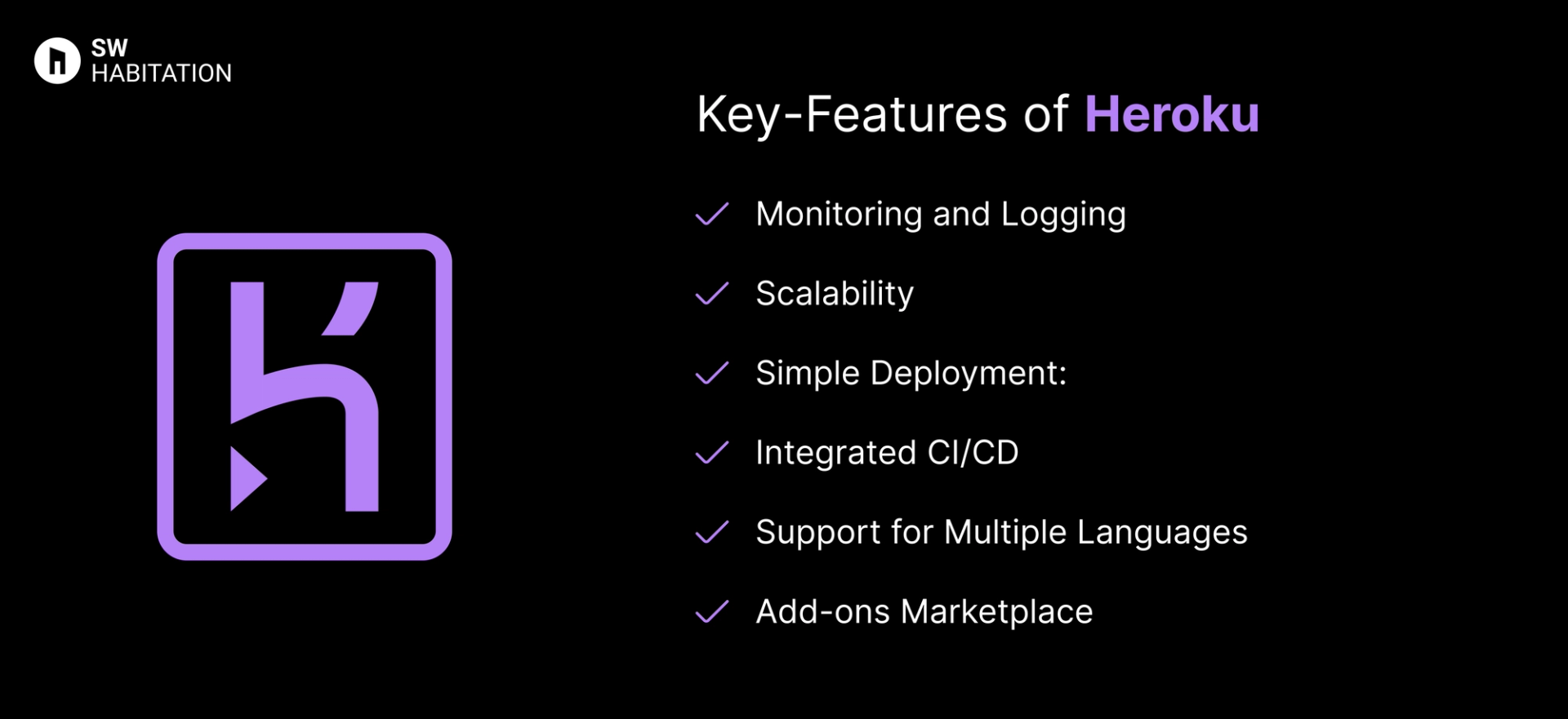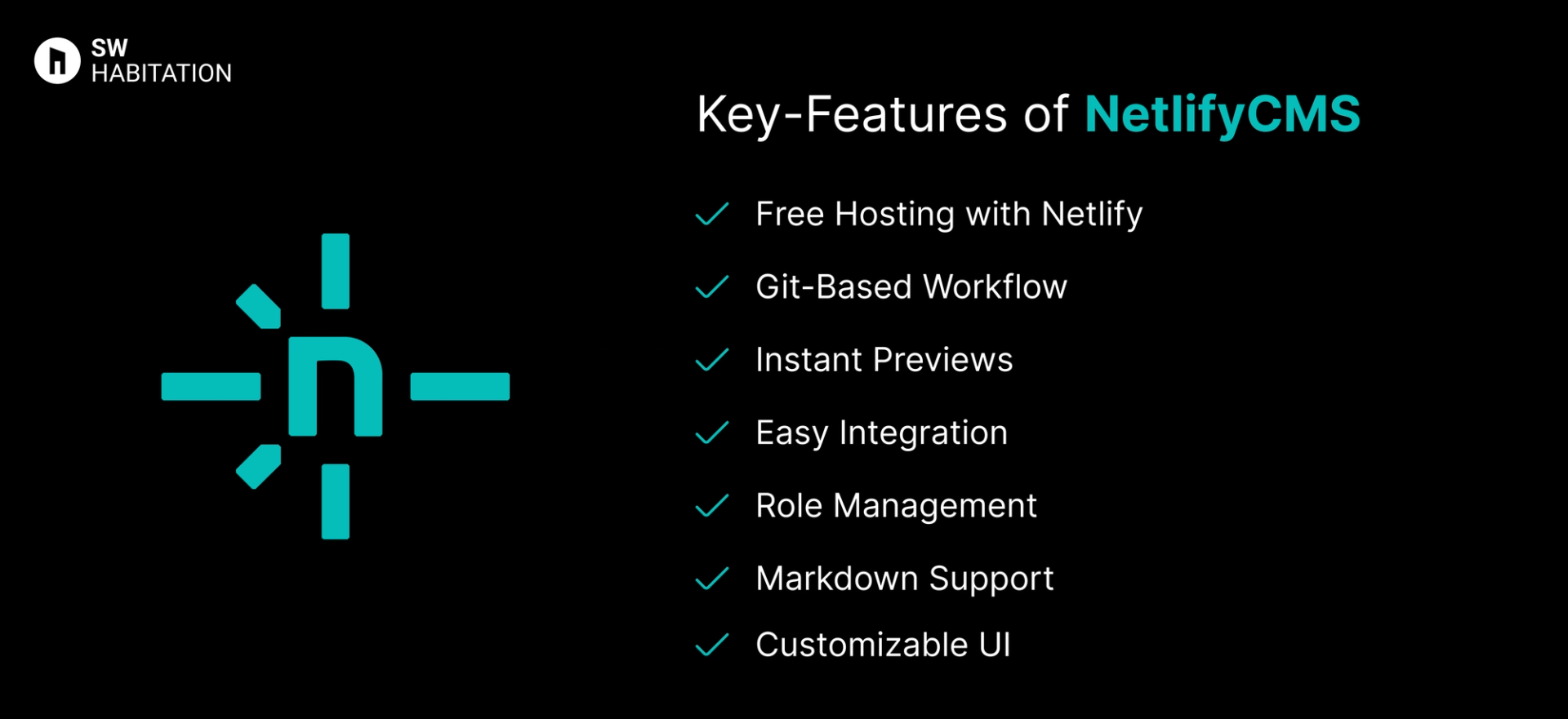Heroku vs. NetlifyCMS

Heroku

NetlifyCMS
You know when you’ve finished building your website and just want to get it online without dealing with all the techy stuff? That’s where deployment platforms help. They make it super easy to put your site live, just connect your code, click a button, and it’s up and running. No need to worry about servers or complicated setups.
They also take care of the important things like speed, security, and updates in the background. So while they handle the heavy stuff, you can focus on making your website look good and work great. It's simple, right?
What is Heroku ?
Heroku is a cloud platform that allows developers to build, run, and operate applications entirely in the cloud. It abstracts away infrastructure complexities, providing a platform-as-a-service (PaaS) solution for deploying apps with just a few commands. From simple web apps to complex backend services, Heroku handles the heavy lifting.
Key Features of Heroku


- Monitoring and Logging: Built-in tools for app health and performance monitoring.
- Scalability: Scale apps effortlessly with dynos (Heroku’s unit of computing power).
- Simple Deployment: Deploy directly from GitHub, Git, or CLI.
- Integrated CI/CD: Continuous integration and delivery pipelines.
- Support for Multiple Languages: Node.js, Python, Ruby, Java, Go, and more.
- Add-ons Marketplace: Extend functionality with databases, monitoring, and more.
Advantages of Heroku
- Free Tier: Great for small projects and learning.
- Easy to Use: Push your code and let Heroku handle the rest.
- Add-ons Marketplace: Access to a rich ecosystem of tools and services.
- Multi-Language Support: Deploy apps in multiple programming languages.
- Scalability: Easily scale up as your app grows.
Disadvantages of Heroku
- Performance: Not ideal for performance-heavy apps at scale.
- Cost Can Add Up: Scaling beyond the free tier gets expensive.
- Limited Customization: Less control over the infrastructure.
- Cold Starts: Apps on the free tier may sleep after inactivity, causing delays.
What is NetlifyCMS ?
NetlifyCMS is an open-source headless CMS built to work with static site generators like Gatsby, Hugo, and Next.js. It gives you a simple web-based UI to manage your content while storing everything directly in your Git repository. This means every change you make is version-controlled, just like your code.
Key Features of NetlifyCMS


- Free Hosting with Netlify: Deploy instantly with Netlify for free.
- Git-Based Workflow: All content changes are stored as commits in your Git repository.
- Instant Previews: See how your content will look before publishing.
- Easy Integration: Works seamlessly with static site generators like Gatsby, Hugo, and Jekyll.
- Role Management: Assign roles to control who can edit what.
- Markdown Support: Write content in Markdown and preview changes in real time.
- Customizable UI: Tailor the admin interface to fit your content structure.
Advantages of Netlify CMS
- Simple Setup: Easy to integrate with Git and static site generators.
- Free to Use: Open-source and works perfectly with Netlify’s free tier.
- Version Control: Content changes are tracked in Git, ensuring full transparency.
- Fast Deployment: Deploy instantly with Netlify.
- Markdown Support: Write clean, lightweight content with Markdown.
Disadvantages of Netlify CMS
- Not Ideal for Large Projects: Better suited for smaller projects.
- Git Dependency: Requires familiarity with Git workflows.
- Limited Integrations: Fewer built-in integrations compared to larger CMSs.
- No Database: Content is stored as files in Git, not in a traditional database.
Comparison Between Heroku vs NetlifyCMS
Use Cases of Heroku
- Hackathons and Learning: Great for rapid development and experimentation.
- Polyglot Projects: Supports multiple programming languages in one platform.
- Startups and Small Businesses: Deploy fast without worrying about infrastructure.
- Prototyping and MVPs: Quickly test ideas with minimal setup.
Use Cases of NetlifyCMS
- Personal Blogs: Simple and fast content management for personal sites.
- Portfolios: Showcase your work with minimal setup.
- Small Business Websites: Perfect for static websites that don’t require complex features.
- Developers Who Love Git: Version control your content the same way you do with code.
Conclusion
Deployment platforms are a total game changer if you’re looking to launch your website quickly, reliably, and without any trouble. Whether it’s a personal portfolio, a startup site, or a growing business platform, they handle the technical heavy lifting like hosting, security, and scalability so you can stay focused on building great experiences for your users.
You’re not boxed into a single approach. Most platforms integrate smoothly with the tools and frameworks you already love, letting you deploy directly from your Git repository, preview updates, and roll back with ease. With lightning-fast performance and dependable uptime, deployment platforms simplify the path from code to production. Pick the one that aligns with your workflow, and you’re all set to launch with confidence 🚀
Frequently asked questions
Is Heroku free?
Heroku used to offer a free tier, but as of late 2022, it now requires a paid plan for most production use. However, it still offers low-cost hobby plans for testing and personal projects.
What are Dynos in Heroku?
Dynos are lightweight containers that run your application processes. Heroku apps run inside dynos. You can scale up by increasing the number of dynos.
Can I use a custom domain on Heroku?
Yes. You can add custom domains via the Heroku Dashboard or CLI and configure DNS settings to point to your app.
What is Netlify CMS?
Netlify CMS is an open-source content management system. It is designed for static site generators. It provides a user-friendly interface for editing content stored in Git repositories.
Is hosting on Netlify required?
Nup, While it integrates seamlessly with Netlify, you can use it with any Git-based static site hosted anywhere.
What static site generators are supported?
Netlify CMS supports popular generators like Hugo, Jekyll, Gatsby, Eleventy (11ty), and others.
